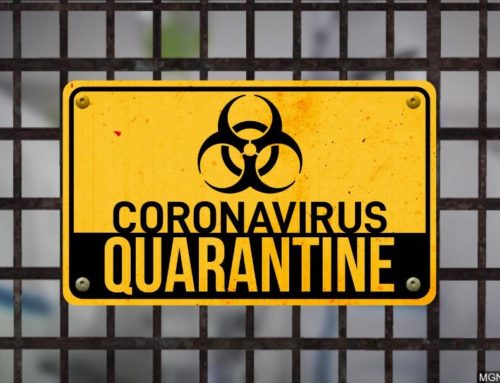There can be lots of stressors during a job search. You don’t know why you didn’t land an interview, or, if you had an interview, why you didn’t get the job offer. Maybe you’re unsure about how you stack up against the competition even though you know you’d be perfect for an open position. If you’ve been out of work, perhaps your bank balance may be struggling. You have to prepare for answering common interview questions, dry clean that power suit, perfect your job applications, negotiate a salary and much more. Most people can agree that job hunting is one of the most challenging processes and there’s a lot to think about!
For some, there may be something else to consider. How do you handle a drug screening if you use marijuana? The new developments and changes to the laws over the past few years bring a potentially confusing new twist for many job seekers in states where marijuana is now legal.
As of Dec. 15, 2016, recreational marijuana is legal in Massachusetts. 1.8 million voters legalized marijuana for recreational use on Nov. 8, 2016, after decriminalizing small amounts in 2008 and legalizing it for medical use in 2012. And now, Massachusetts is about three months away from the beginning of recreational marijuana sales. What does this mean for drug testing and marijuana in the workplace? Be sure to stay connected to Schulze Law for more updates as they evolve and information on how laws and regulations may affect you.
Here are a few general workplace drug testing facts to get us started. According to Nolo.com, Federal law places minimal limitations on employer drug testing. The federal government does require testing by employers in a few safety-sensitive industries. These industries include transportation, aviation, and contractors with NASA and the Department of Defense. Otherwise, Federal law doesn’t require or prohibit drug tests. Largely, state and local laws determine whether an employer may test employees and applicants for drugs.
Drug Testing in Massachusetts
Unlike some other states, Massachusetts has NOT passed laws regulating or restricting an employer’s right to require drug testing. Massachusetts legislation does not address drug testing in private employment. However, Massachusetts does allow three circumstances when an employer can ask an individual to take a drug test. This includes pre-employment, reasonable suspicion, and random testing for safety-sensitive positions. The restrictions on drug testing come from the courts’ efforts to make sure that employers don’t violate an individual’s privacy rights without good reason. Ultimately, the employer has to have a really good reason, or the employee has to waive his/her expectation of privacy.
Massachusetts does have a privacy rights statute, Mass. Gen. L. Ch. 214, s. 1B, which protects individuals from unwarranted invasion of their privacy. This statute potentially complicates an employer’s ability to drug test current employees if the employer isn’t extremely careful. During the application process (pre-employment), an individual isn’t forced to apply for a job if they are told up front that a positive drug test will disqualify them from employment. They can simply walk away. So if someone consents to the test, essentially they are waiving their privacy rights. In the case of drug testing current employees, if an employer has a reasonable suspicion that the employee is working under the influence, the employer’s interests in a safe and substance-free work environment has a leg-up over the individual’s privacy rights. That said, the suspicion must be based on actual observation or very specific information. Massachusetts Supreme Court has issued a ruling on random drug testing in private employment. In Webster v. Motorola, the Court found that the validity of an employer’s policy of random drug testing had to be weighed on a case-by-case basis, taking into account the employee’s job responsibilities and the employer’s interests.
Massachusetts law puts very few limits on workplace drug testing, so employees who believe their test was illegal should contact Schulze Law immediately to help navigate the complex process. For example, an employer may run into legal trouble based on who is tested or how the test is conducted. Here are some examples according to Nolo.com:
- Disability discrimination. The Americans with Disabilities Act (ACA) protects an applicant or employee who is taking medication for a disability. Some prescribed medications can result in a positive result on a drug test.
- Other discrimination claims. An employer who singles out certain groups of employees – for example, by race, age, or gender– for drug testing could face a discrimination claim.
- Invasion of privacy. Even an employer that has a legitimate reason to test might violate employee privacy in the way it conducts the test.
- Defamation. An employee might have a valid claim for defamation if the employer publicizes a false positive result.
If you are being asked to take a drug test, we can help you understand your rights.
Medical Marijuana and Workplace Drug Testing
Massachusetts Marijuana Laws have been evolving tremendously over the past few years which has had a ripple effect in many areas including workplace drug testing and the ability of employers to take disciplinary action against employees for using marijuana at work.
On July 17th, the Massachusetts Supreme Judicial Court unanimously held that an employee may pursue a disability discrimination claim under state law against a former employer for failing to accommodate the employee’s use of medical marijuana. This was a groundbreaking case!
According to Justia.com, this is the first decision by any state’s highest court to recognize a duty to accommodate medical marijuana users at work. Prior to this case (Massachusetts Supreme Judicial Court’s decision in Barbuto v. Advantage Sales & Marketing, LLC, S) all of the state supreme courts that have addressed the issue have held that employers are NOT required to accommodate an employee’s use of medical marijuana. A huge development!
The Massachusetts medical marijuana law that was passed in 2012 doesn’t specifically provide employment-related legal protection for marijuana users. But in this case, the Massachusetts Supreme Judicial Court focused on language in the medical marijuana act stating that lawful users can’t be “denied any right or privilege” for such use.
Under the state’s disability discrimination law, employees have the right to seek a reasonable accommodation. Now, as a result of the act, under Massachusetts law, the use and possession of medically prescribed marijuana by a qualifying patient is as lawful as the use and possession of any other prescribed medication. Marijuana now gets the same rights as other prescription meds.
The Barbuto decision exemplifies a major change for employers in Massachusetts. As a result of the court’s decision, employers in Massachusetts can’t blatantly reject a request to accommodate medical marijuana users. Now employers must engage in the interactive process, regardless of any drug testing polices.
However, the Massachusetts court also made it clear that employers don’t have to accommodate on-duty use or impairment in the workplace, even by registered medicinal users. The Court also made note of the illegal status of marijuana under federal law, but found that it does not take precedence over the protections given to employees under state law.
The court also provided guidance on evaluating requests for accommodation. The court observed that employers may still prohibit employees from coming to work under the influence. Notably, employers are NOT required to accommodate an employee’s recreational use of marijuana.
According to Chapter 151B and noted by the court, an employer may reject a proposed accommodation if it poses an “undue hardship.” The court then identified circumstances that might substantiate an undue hardship defense:
- “impair the employee’s performance of her work,”
- “pose an unacceptably significant safety risk to the public, the employee, or her fellow employees,” or
- “violate an employer’s contractual or statutory obligation, and thereby jeopardize its ability to perform its business.”
Effects on Workplace Drug Testing
In summary, both the medical marijuana and recreational marijuana laws explicitly state that they do not require employers to accommodate marijuana use in the workplace. Employees will still be expected to adhere to company rules and regulations in the interest of maintaining employee safety, performance and productivity in the workplace.
At Schulze Law we stay on top of the laws to assist you with understanding your rights. Medical and recreational marijuana involves complex, evolving, and sometimes contradictory laws. We highly recommend contacting our firm to ensure you and your employer are following all applicable laws.
At Schulze Law, we are ever learning and staying right on top of the very latest in the field so that we can best protect and fight for our clients’ rights. Keep following us for updates on marijuana in the workplace and please contact us with any questions.
CALL NOW: 857-300-5300 Emergency After Hours Number: 800-894-9267 XLAW1 (5291)
References:
https://www.nolo.com/
https://law.justia.com/






